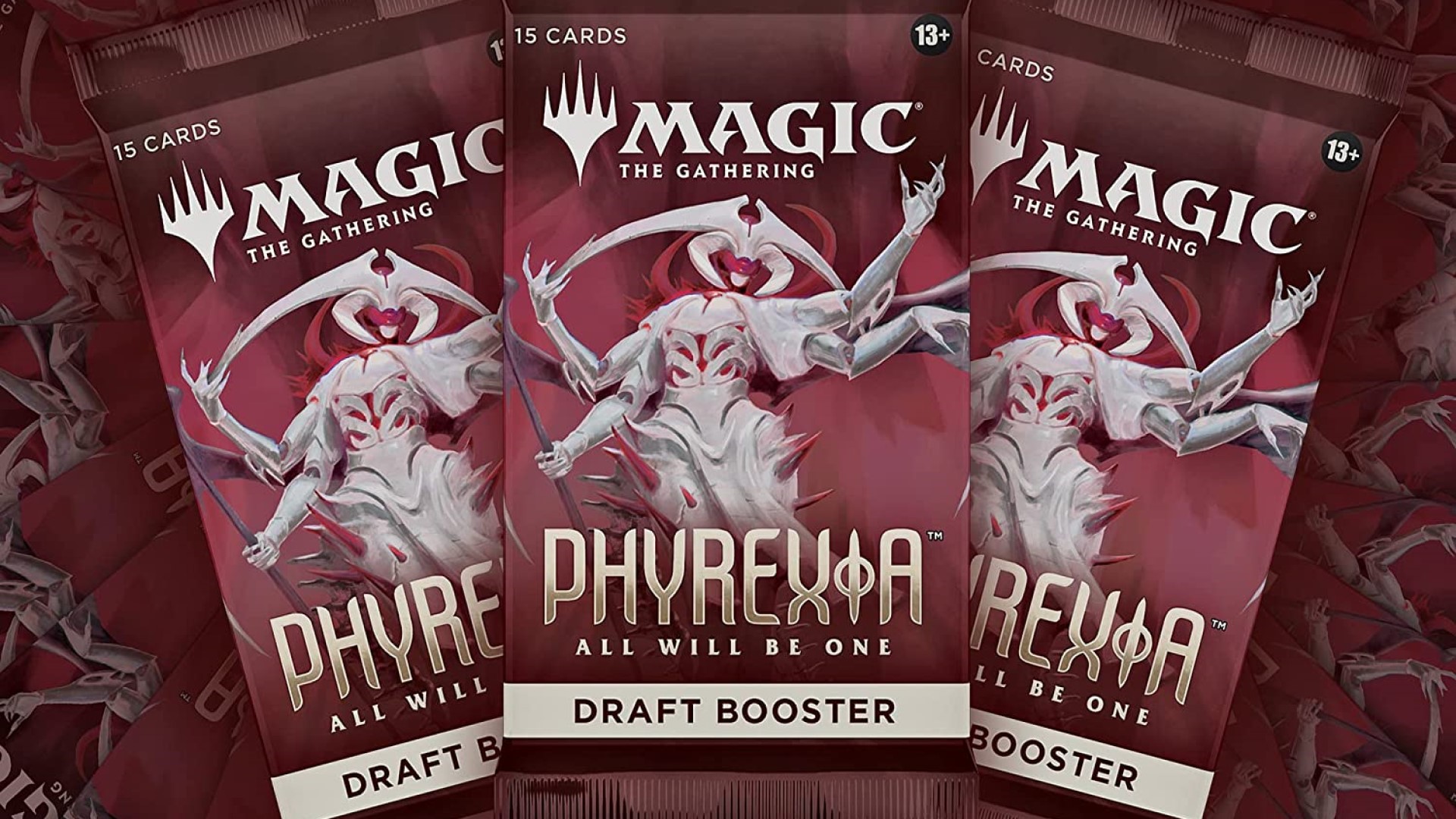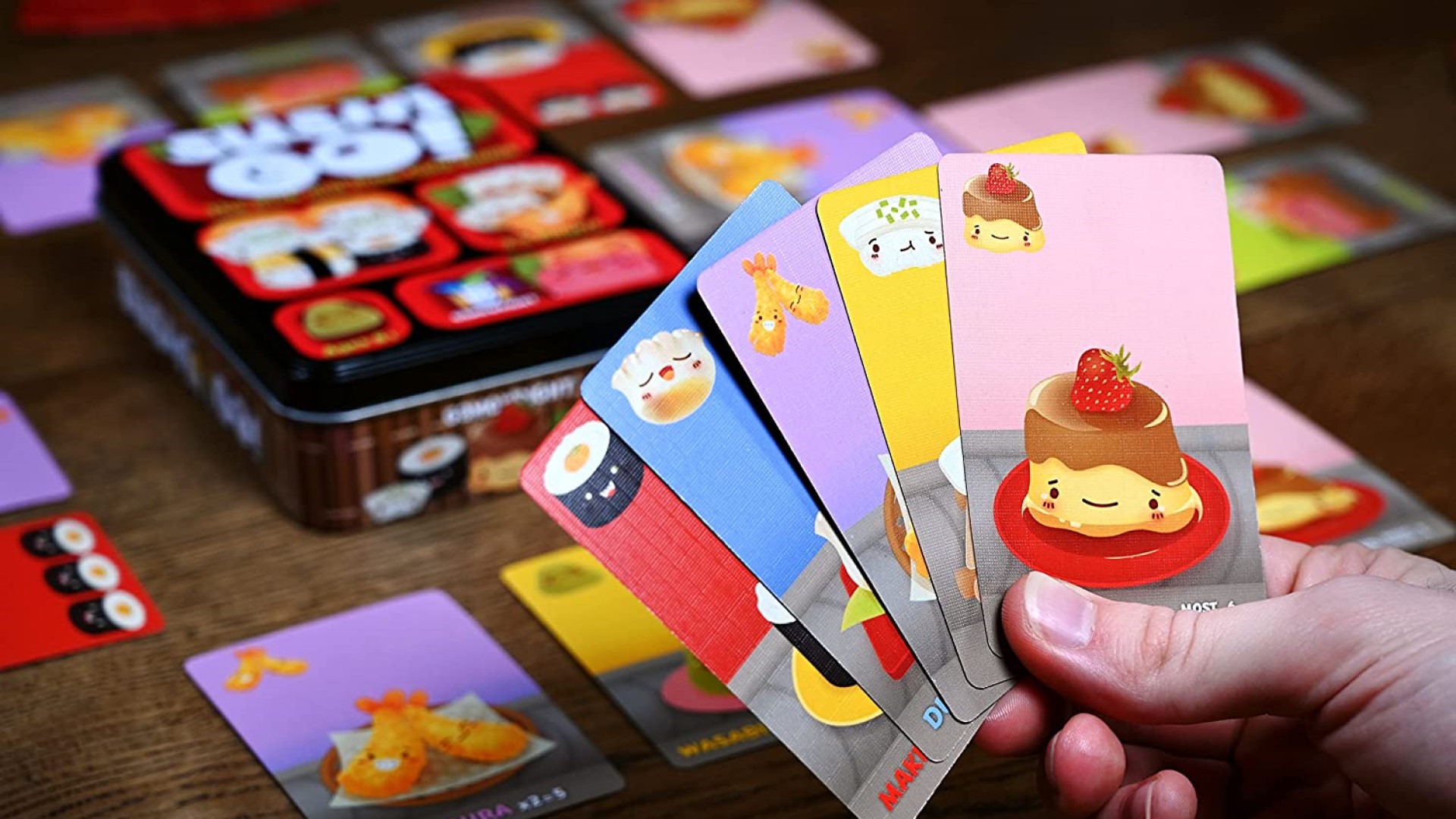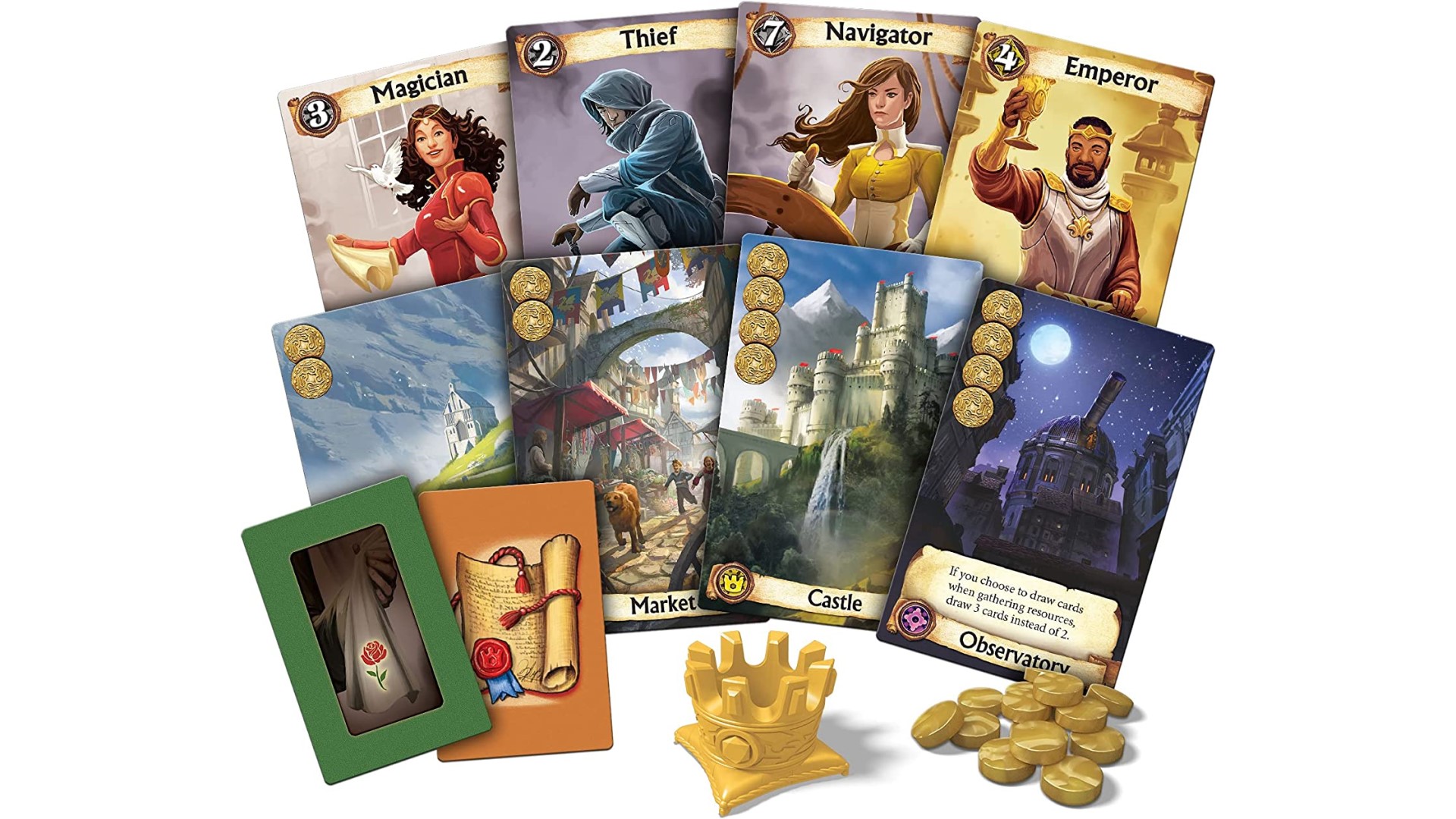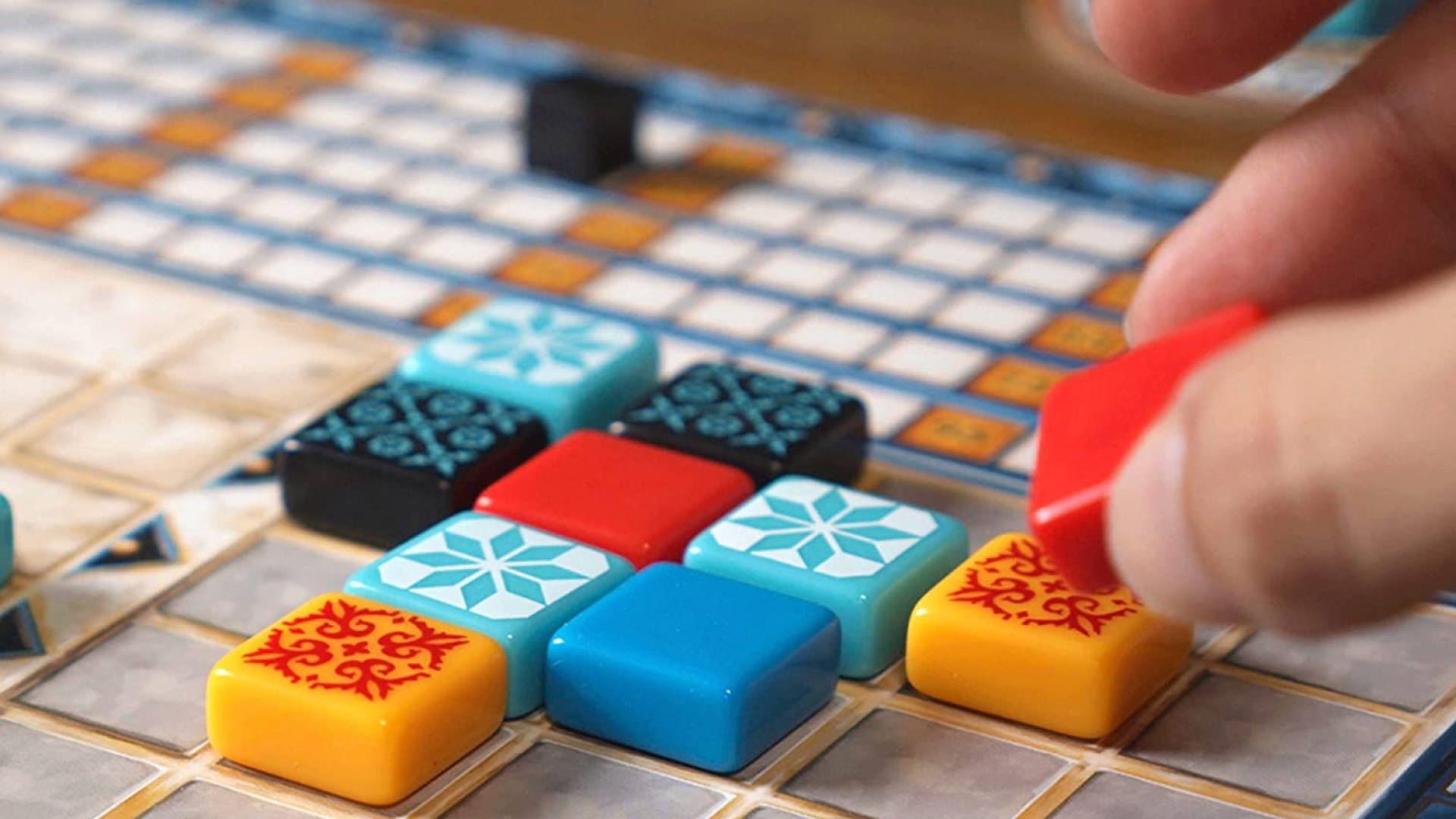In drafting games, every decision you make matters. Their main mechanic is a pretty simple one: players must each choose a resource (usually a card) from a limited pool. You’re usually trying to build an engine or a deck in pursuit of points. Though the idea itself isn’t complex, there’s a surprising amount of strategy involved. Will your next choice sync with your previous ones? Is it worth taking the card in your hand to spite your opponent? The possibilities are endless.
Here you’ll find a list of the best drafting games out there. While most of them are part of the ‘best card games’ pantheon, some of them are also found in our list of best board games and trading card games.
These are the best drafting games:
- MTG draft
- 7 Wonders
- Sushi Go
- Citadels
- Azul
MTG draft
Even after all these years, Magic: The Gathering is still the trading card game to beat. It’s filled with gorgeous card art and a variety of exciting mechanics, and the feeling of wonder and potential you get from opening packs makes this a perfect game for drafting. The MTG draft format is dedicated to this mechanic, and it’s one of our favourite ways to play the game.
In an MTG draft, each player starts with three sealed packs of cards. They crack the first pack, choose the card they want to keep, and pass the remaining cards on. Repeat until the packs are handed out, then move on to the next pack, and so on. After all cards are drafted, players build MTG decks with their choices, and then they go head-to-head in some traditional Magic games.
In Magic, no two drafts are ever the same. The MTG release schedule pumps cards out constantly, so the draft experience is always evolving. Buying enough packs for the recommended eight players will cost significantly more than a more compact card game (and many groups choose to split the costs between them). However, if you want an endlessly replayable draft experience that scratches your strategy itch, you can’t go wrong here.
7 Wonders
7 Wonders is a truly elegant drafting game. The rulebook is only a few pages long, making it highly approachable for newcomers. And behind this simplicity, 7 Wonders hides a deep well of strategy. It’s a game that deserves to be mulled over. You’ll find yourself replaying games in your head, dissecting each card choice to make your next game even stronger.
Each player leads an ancient city, and their goal is to develop the most advanced, marvellous civilisation possible. They might focus on scientific progress or military strength, and they’ll very likely build a great wonder of the world to show off their prowess.
Rules-wise, this is your standard closed drafting game. You choose a card, pass the remaining cards in your hand on, and keep your choices secret from other players.
When picking your card, you’ve got three options: pay its cost to build it, pay a cost and use it to construct your wonder, or trash it for free money. The points you score at the end depend on the combination of buildings in your city, whether you finished your wonder, and how you fared in military battles against your neighbours. It’s not hard to learn, but the game has many moving parts to keep you thinking.
Sushi Go Party!
For fans of quick, easy card games, we recommend Sushi Go Party!, a snappy drafting game about tasty seafood. This is a great choice if you’re looking for family board games to include younger players, or you need a game you can wrap up in under 20 minutes.
You should be pretty familiar with drafting by this point. Choose a card, pass the rest on, repeat. In Sushi Go Party!, each card represents different ingredients or types of sushi. Some cards only score points in groups, so you’ll need to draft two, three, or more of the same type. Others nab you points if you’ve got more of them than any other sushi chef playing. Additionally, special cards allow you to take bonus actions at opportune times.
Sushi Go Party! is light, fast, cute, and (most importantly) a lot of fun. It’s not the most complex drafting game out there, but sometimes that’s exactly what you’re looking for.
Citadels
Citadels gives the traditional drafting mechanic a bit of a twist. While much of the game involves playing cards to construct buildings in your city, these aren’t the cards you’ll be drafting.
Before any turns are taken, players pass around a character deck. This is a handful of cards with unique roles. For example, the Assassin can murder another character and cause them to miss their turn. Once each player has a role, the player with the crown calls out each role in their numerical order. When your role is called, you take your turn, gaining resources and adding cards to your city.
This is another simple-t0-learn card game with a surprising amount of depth. While you’re trying to max out the points scored in your city and race to the game’s end condition, you’ll also need to keep a close eye on your fellow players. Figuring out what role they’ll choose this round is difficult, but often essential.
Azul
Azul is the only game on this list that doesn’t involve cards. Instead, you’ll be drafting pieces to create beautiful mosaics. These clack-y, brightly coloured tiles are wonderfully tactile. And while there is an element of strategy to Azul’s gameplay, there’s something incredibly soothing about the process of building your patterned ceramic.
A round of Azul begins with several small piles of mosaic pieces. On your turn, you can choose to take all tiles of a single colour from a small pile. Any remaining pieces are poured into a growing pile in the middle of the table. You can also choose to pick tiles of a single colour from this pile as the game goes on.
Once you’ve made your choice, add the tiles to your mosaic board. Your tiles must be added to the same pattern line, and a single line can only have pieces of one colour on. If you end up with more tiles than you can place, you’ll end up dropping some – and losing points. This is where you’ll need to engage your brain, as filling up your board with the right combination of tiles is how you’ll score big points.
Draft soothingly, draft beautifully, and definitely draft carefully. Check out our full Azul review for more details on this drafting game, too.
Source: Wargamer








